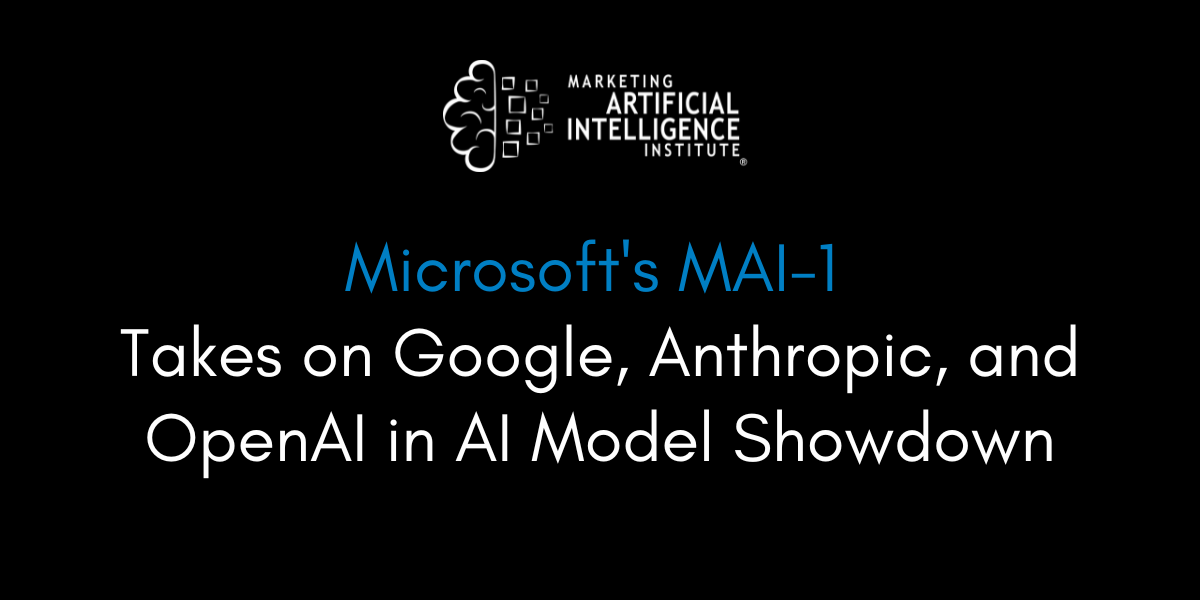Microsoft is getting into the AI model-building game.
According to The Information, the tech giant is working on a new large language model internally dubbed "MAI-1" that could compete with offerings from Google, Anthropic, and even OpenAI—despite Microsoft's multi-billion dollar partnership with the latter.
The model, said to be around 500 billion parameters in size, is being overseen by Mustafa Suleyman. Suleyman was previously CEO of AI startup Inflection, which Microsoft essentially acquired a few months ago in a $650 million deal. While MAI-1 is described as a brand new model, it may leverage Inflection's training data and technologies.
Why is Microsoft pursuing its own frontier model when it already has a deal with OpenAI?
It's all about playing every possible angle in the fast-moving AI space, says Paul Roetzer, founder and CEO of Marketing AI Institute, who broke it all down for me on Episode 97 of The Artificial Intelligence Show.
"I think everybody's just placing bets here," he says. "Amazon's doing the same thing. Google's doing the same thing. I don't think we know how the winners play out here."
He pointed out that there will likely be room in the market for both massive frontier models and smaller on-device AI. Microsoft's own customers may want the flexibility to work with third-party models like GPT-4 while keeping their data in Azure, or to engage exclusively with Microsoft's homegrown AI.
"The market is so early that there's just no way to predict this, and I don't think Microsoft wants to be left out of the frontier model game," Roetzer explained.
"They may end up realizing they can build a bigger, better model than OpenAI can."
Details are still scarce on exactly what MAI-1 will be used for and how it will stack up against rivals. At an estimated 500 billion parameters, it would be about half the size of GPT-4 (which The Information pegs at over 1 trillion parameters).
Sources told The Information that Microsoft's plans for MAI-1 will depend on how well it ultimately performs. But the company could preview the model as soon as later this month at its Build developer conference.
One thing is certain:
With its vast resources and technical talent, Microsoft is certainly well-positioned to make waves with an in-house AI model. The company has:
- Extensive computing infrastructure via Azure
- Mountains of data to train models on
- Top-tier AI expertise, bolstered by the Inflection acquisition
- Years of insight from its close partnership with OpenAI
"Microsoft's got all the resources in the world to do this," noted Roetzer. "It just seems like it would be silly to not be pursuing all paths right now until we see more how this plays out."
Mike Kaput
As Chief Content Officer, Mike Kaput uses content marketing, marketing strategy, and marketing technology to grow and scale traffic, leads, and revenue for Marketing AI Institute. Mike is the co-author of Marketing Artificial Intelligence: AI, Marketing and the Future of Business (Matt Holt Books, 2022). See Mike's full bio.



